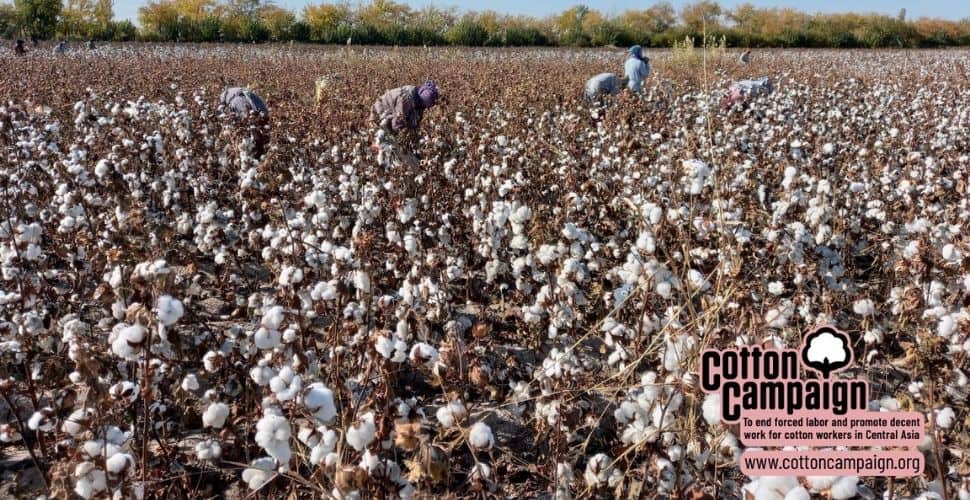Today we are celebrating news that proves making a noise, signing petitions, and posting on social media does lead to change.
The system of state-imposed forced labor in Uzbekistan’s cotton industry has ended. Freedom United, together with our colleagues the Cotton Campaign, announces the lifting of the global boycott of Uzbek cotton. This announcement comes as the Uzbek Forum for Human Rights releases its report findings of the 2021 harvest.
This breakthrough has come about because of the persistent and coordinated engagement by Uzbek activists, advocates like you who called directly on the government as well as brands and companies to call for change through the Uzbek Cotton Pledge Against Forced Labor to not source Uzbek cotton signed by 331 brands and retailers. That Pledge is now ended.
Together these actions encouraged the President of Uzbekistan to lead the reform of the entire cotton sector. Uzbekistan now has the potential to become a key sourcing country for cotton textiles. However, companies sourcing from Uzbekistan must commit to ensuring that labor rights are respected at all stages of production as individual cases of forced labor were found in the 2021 harvest.
Independent groups that conduct field-level monitoring and capacity building are still unable to register and operate freely, which must be addressed for progress to be sustained. The experience of activists within Uzbekistan has been a particular concern for the Freedom United community.
We campaigned to free Elena Urlaeva who was forcibly sectioned in a psychiatric institution in 2017 just before she was due to meet a delegation from the International Trade Union Confederation and the World Bank Group to share information concerning the Uzbek Government’s widespread use of forced labor.
We also called on the World Bank to suspend loans to Uzbekistan whilst forced labor persists, handing in 136,106 signatures to the World Bank. Together with the Cotton Campaign, we organized a public protest at the World Bank Headquarters in Washington DC that included the projection of a 5-minute video onto the exterior of the World Bank Headquarters.
In late 2017, the Freedom United community was called on to support Uzbek human rights activist Malokhat Eshonkulova secure legal fees to defend herself against malicious charges following pickets she organized calling on the authorities to stop interfering in her work to monitor forced and child labor in the cotton harvest. Her home was raided, her belongings confiscated and she was unable to leave the country.
Joanna Ewart-James, Freedom United’s Executive Director said:
For a long time our goal felt far out of reach. But we did not give up. Having been actively involved in the Cotton Campaign since 2009, I am certain that all credit for this success goes to the combination and coordination of the work of all the coalition’s members and supporters. This includes brave activists standing up in the face of extreme repression in Uzbekistan, to companies taking a stand to avoid buying cotton from Uzbekistan, and partner organisations’ initiatives such as the Pledge, push international banks, the EU, the ILO and much more. This was all backed up with the power of a global community who made their position clear: ‘We do not accept cotton made with forced labour!’.
The Cotton Campaign continues its work in Uzbekistan to support the development of an ethical industry and to ensure that reforms continue.
Freedom United is calling for laws that require companies to ensure they put people and the planet before profit. Join the campaign today.







-
Follow us on Facebook
5.6M
-
Follow us on Twitter
32K
-
Follow us on Instagram
8K
-
Subscribe to our Youtube
5.7K
Donate